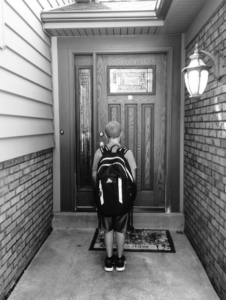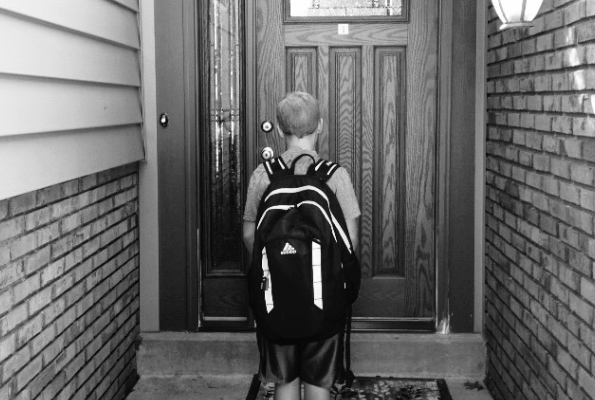The Hike
Imagine if you will, you are invited to join a group of experienced hikers on a long, challenging hike. When you arrive, you are handed a backpack that appears to be the same as the one the rest of the group has strapped on their backs. Although they look the same, your backpack is very different. It is full of rocks and a bottle of water, while the others are carrying lightweight necessities and water needed for the journey. As you strap on your pack the lead hiker says, “We expect you to keep our pace. We have a lot of ground to cover and cannot slow down to wait for you.”

It doesn’t take long for you to get winded as you struggle to keep the arduous pace. Every muscle is aching, and you finally get up the courage to let the group know you are struggling. Instead of slowing down, the lead hiker reminds you that they have a goal to meet and must keep the pace. You are told that you are capable and even though it’s difficult, you just need to try harder to keep up. You complain that the pack is too heavy but are dismissed because it is assumed you are all carrying the same tools and supplies. After your pleas for help are shut down and even ignored, you begin to question yourself. “What is wrong with me?” Why am I not stronger, and why can’t I keep up?” Feeling ashamed, you stop asking for help and force yourself to keep going.
After several miles of compensating for a heavy pack you stumble and fall twisting your knee. When the group stops to help and tend to your injury, someone finally notices that you are indeed struggling and more fatigued than the rest of the hikers. The lead hiker inspects your pack and discovers it is very different from the others and you don’t have the tools you need to make it to the end. The rocks are unloaded from your pack leaving it lighter and more manageable to carry, but the damage to your knee from carrying the heavy load for so long is done. Removing the rocks gives you the opportunity to hike at a faster pace, but the injury hinders your ability to keep up with the group. Had the lead hiker noticed your pack full of rocks sooner keeping pace with the group would have been more feasible.
This is essentially what we ask children with dyslexia to do every day as they walk into their classrooms. There are no medications to reduce or remediate symptoms. Their families often feel helpless to find solutions to make their school lives more manageable. They agree to any program the school has available to help their children and many times to no avail. In fact, some of those programs caused further injury. These children have their motivation, willingness to learn, and work ethic questioned – sometimes daily. Parents and students may be told that they are capable and just need to try harder or apply themselves more. The truth is these kids do work hard, much harder than their peers only to get half as far. It is extremely frustrating for them and often leads to other problems, which can include anxiety and low self-esteem. Families watch the struggle change their kids and must continuously fight against it.
Every day they go to a place that is not created for them and makes them feel anxious and inadequate. The feelings are bittersweet. While parents are proud of the work ethic and courage their kids display, it is heart wrenching to knowingly send them into a situation that pushes the limits of their emotional health for the sake of learning. They bravely walk out the door for school every day carrying a load that is much too heavy for their shoulders to hold while their parents watch and hope that they return home the same child with their self-esteem intact.

Sarah Bartley is a fierce mom advocate for her son. This was her actual testimony given before the Missouri House of Representatives Education Committee for HB 2379 on February 15, 2016. The Dyslexia Screening Bill signed into law on June 22, 2016.




